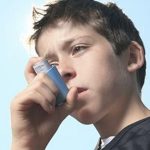
Stress is rarely a good thing for your health, but new research warns that it significantly raises the risk of a stroke. The study found that increased stress at home or work and recent stressful life events — like getting divorced or a major family conflict — were associated both with increased risk of stroke due to a clot, known as an ischemic stroke, and a stroke due to bleeding in the brain, called a hemorrhagic stroke. What to do to lower that risk? “Optimal approaches to managing, and preventing, psychosocial stress are uncertain. Previous studies have looked at interventions such as cognitive behavioral therapy, relaxation techniques, client-led discussion, stress management, exercise regimens and anger management,” said study author Dr. Catriona Reddin, of the University of Galway College of Medicine, Nursing and Health Sciences, in Ireland. “The most effective approach may vary from person to person. It’s important that everyone has a strategy that works for them,” Reddin said. Her team studied stress around the world using data from a retrospective study known as INTERSTROKE in more than 26,000 people in 32 countries in North and South America, Africa, Asia, Europe, Australia and the Middle East. People who had severe work stress were more than twice as likely to have an ischemic stroke as those with no work stress, the investigators found. They were more… read on > read on >
























-300x200.jpg)













